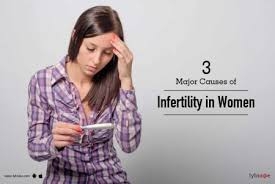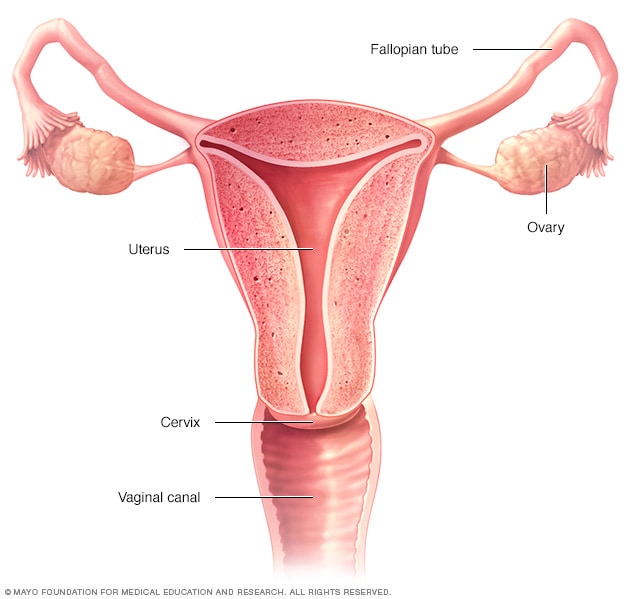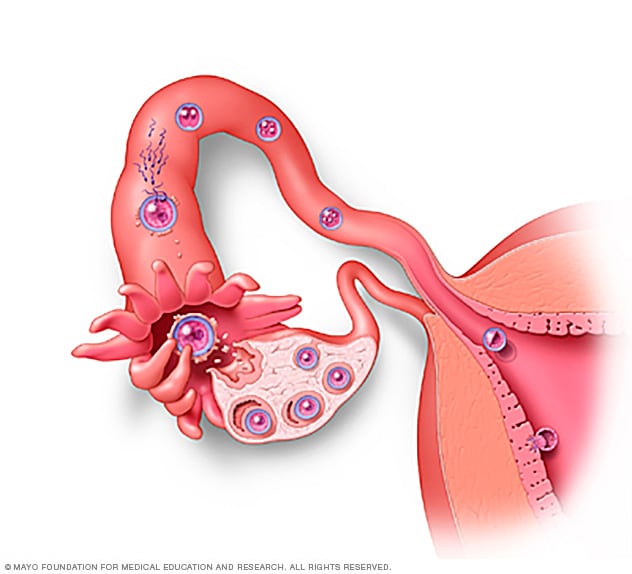News And PoliticsCommunications And EntertainmentSports And FitnessHealth And LifestyleOthersGeneralWorldnewsBusiness And MoneyNigerianewsRelationship And MarriageStories And PoemsArts And EducationScience And TechnologyCelebrityEntertainmentMotivationalsReligion And PrinciplesNewsFood And KitchenHealthPersonal Care And BeautySportsBusinessFamily And HolidaysStoriesIT And Computer ScienceRelationshipsLawLifestyleComedyReligionLifetipsEducationMotivationAgriculturePoliticsAnnouncementUSMLE And MedicalsMoneyEngineeringPoemsSocial SciencesHistoryFoodGive AidBeautyMarriageQuestions And AnswersHobbies And HandiworksVehicles And MobilityTechnologyFamilyPrinciplesNatureQuotesFashionAdvertisementChildrenKitchenGive HelpArtsWomenSpiritualityQuestions AnsweredAnimalsHerbal MedicineSciencePersonal CareFitnessTravelSecurityOpinionMedicineHome RemedyMenReviewsHobbiesGiveawayHolidaysUsmleVehiclesHandiworksHalloweenQ&A
Lifestyle
profile/3690IMG-20200925-WA0011.jpg
Amygold

FEMALE INFERTILITY
~6.8 mins read
Infertility is defined as trying to get pregnant (with frequent intercourse) for at least a year with no success. Female infertility, male infertility or a combination of the two affects millions of couples in the United States. An estimated 10 to 18 percent of couples have trouble getting pregnant or having a successful delivery.Infertility results from female factors about one-third of the time and male factors about one-third of the time. The cause is either unknown or a combination of male and female factors in the remaining cases.
Up to age 35, most doctors recommend trying to get pregnant for at least a year before testing or treatment.
If you're between 35 and 40, discuss your concerns with your doctor after six months of trying.
If you're older than 40, your doctor may want to begin testing or treatment right away.
 Female reproductive systemOpen pop-up dialog box
Female reproductive systemOpen pop-up dialog box
 Fertilization and implantationOpen pop-up dialog box
Fertilization and implantationOpen pop-up dialog box
You need to ovulate. To get pregnant, your ovaries must produce and release an egg, a process known as ovulation. Your doctor can help evaluate your menstrual cycles and confirm ovulation.
Your partner needs sperm. For most couples, this isn't a problem unless your partner has a history of illness or surgery. Your doctor can run some simple tests to evaluate the health of your partner's sperm.
You need to have regular intercourse. You need to have regular sexual intercourse during your fertile time. Your doctor can help you better understand when you're most fertile.
You need to have open fallopian tubes and a normal uterus. The egg and sperm meet in the fallopian tubes, and the embryo needs a healthy uterus in which to grow.
One of the two ovaries releases a mature egg.
The egg is picked up by the fallopian tube.
Sperm swim up the cervix, through the uterus and into the fallopian tube to reach the egg for fertilization.
The fertilized egg travels down the fallopian tube to the uterus.
The fertilized egg implants and grows in the uterus.
Polycystic ovary syndrome (PCOS). PCOS causes a hormone imbalance, which affects ovulation. PCOS is associated with insulin resistance and obesity, abnormal hair growth on the face or body, and acne. It's the most common cause of female infertility.
Hypothalamic dysfunction. Two hormones produced by the pituitary gland are responsible for stimulating ovulation each month — follicle-stimulating hormone (FSH) and luteinizing hormone (LH). Excess physical or emotional stress, a very high or very low body weight, or a recent substantial weight gain or loss can disrupt production of these hormones and affect ovulation. Irregular or absent periods are the most common signs.
Premature ovarian failure. Also called primary ovarian insufficiency, this disorder is usually caused by an autoimmune response or by premature loss of eggs from your ovary (possibly from genetics or chemotherapy). The ovary no longer produces eggs, and it lowers estrogen production in women under the age of 40.
Too much prolactin. The pituitary gland may cause excess production of prolactin (hyperprolactinemia), which reduces estrogen production and may cause infertility. Usually related to a pituitary gland problem, this can also be caused by medications you're taking for another disease.
Pelvic inflammatory disease, an infection of the uterus and fallopian tubes due to chlamydia, gonorrhea or other sexually transmitted infections
Previous surgery in the abdomen or pelvis, including surgery for ectopic pregnancy, in which a fertilized egg implants and develops in a fallopian tube instead of the uterus
Pelvic tuberculosis, a major cause of tubal infertility worldwide, although uncommon in the United States
Benign polyps or tumors (fibroids or myomas) are common in the uterus. Some can block fallopian tubes or interfere with implantation, affecting fertility. However, many women who have fibroids or polyps do become pregnant.
Endometriosis scarring or inflammation within the uterus can disrupt implantation.
Uterine abnormalities present from birth, such as an abnormally shaped uterus, can cause problems becoming or remaining pregnant.
Cervical stenosis, a narrowing of the cervix, can be caused by an inherited malformation or damage to the cervix.
Sometimes the cervix can't produce the best type of mucus to allow the sperm to travel through the cervix into the uterus.
Age. The quality and quantity of a woman's eggs begin to decline with increasing age. In the mid-30s, the rate of follicle loss speeds, resulting in fewer and poorer quality eggs. This makes conception more difficult, and increases the risk of miscarriage.
Smoking. Besides damaging your cervix and fallopian tubes, smoking increases your risk of miscarriage and ectopic pregnancy. It's also thought to age your ovaries and deplete your eggs prematurely. Stop smoking before beginning fertility treatment.
Weight. Being overweight or significantly underweight may affect normal ovulation. Getting to a healthy body mass index (BMI) may increase the frequency of ovulation and likelihood of pregnancy.
Sexual history. Sexually transmitted infections such as chlamydia and gonorrhea can damage the fallopian tubes. Having unprotected intercourse with multiple partners increases your risk of a sexually transmitted infection that may cause fertility problems later.
Alcohol. Stick to moderate alcohol consumption of no more than one alcoholic drink per day.
Maintain a normal weight. Overweight and underweight women are at increased risk of ovulation disorders. If you need to lose weight, exercise moderately. Strenuous, intense exercise of more than five hours a week has been associated with decreased ovulation.
Quit smoking. Tobacco has multiple negative effects on fertility, not to mention your general health and the health of a fetus. If you smoke and are considering pregnancy, quit now.
Avoid alcohol. Heavy alcohol use may lead to decreased fertility. And any alcohol use can affect the health of a developing fetus. If you're planning to become pregnant, avoid alcohol, and don't drink alcohol while you're pregnant.
Reduce stress. Some studies have shown that couples experiencing psychological stress had poorer results with infertility treatment. If you can, find a way to reduce stress in your life before trying to become pregnant.
Limit caffeine. Research suggests that limiting caffeine intake to less than 200 milligrams a day shouldn't affect your ability to get pregnant. That's about one to two cups of 6 to 8 ounces of coffee per day
Source:mayoclinic.org
Female infertility causes can be difficult to diagnose. There are many available treatments, which will depend on the cause of infertility. Many infertile couples will go on to conceive a child without treatment. After trying to get pregnant for two years, about 95 percent of couples successfully conceive.
Symptoms
The main symptom of infertility is the inability to get pregnant. A menstrual cycle that's too long (35 days or more), too short (less than 21 days), irregular or absent can mean that you're not ovulating. There may be no other outward signs or symptoms.
When to see a doctor
When to seek help sometimes depends on your age:
Your doctor may also want to begin testing or treatment right away if you or your partner has known fertility problems, or if you have a history of irregular or painful periods, pelvic inflammatory disease, repeated miscarriages, prior cancer treatment, or endometriosis.
Causes
 Female reproductive systemOpen pop-up dialog box
Female reproductive systemOpen pop-up dialog box Fertilization and implantationOpen pop-up dialog box
Fertilization and implantationOpen pop-up dialog box
Fertilization and implantation
Each of these factors is essential to become pregnant:
For pregnancy to occur, every step of the human reproduction process has to happen correctly. The steps in this process are:
In women, a number of factors can disrupt this process at any step. Female infertility is caused by one or more of the factors below.
Ovulation disorders
Ovulation disorders, meaning you ovulate infrequently or not at all, account for infertility in about 1 in 4 infertile couples. Problems with the regulation of reproductive hormones by the hypothalamus or the pituitary gland, or problems in the ovary, can cause ovulation disorders.
Damage to fallopian tubes (tubal infertility)
Damaged or blocked fallopian tubes keep sperm from getting to the egg or block the passage of the fertilized egg into the uterus. Causes of fallopian tube damage or blockage can include:
Endometriosis
Endometriosis occurs when tissue that normally grows in the uterus implants and grows in other locations. This extra tissue growth — and the surgical removal of it — can cause scarring, which may block fallopian tubes and keep an egg and sperm from uniting.
Endometriosis can also affect the lining of the uterus, disrupting implantation of the fertilized egg. The condition also seems to affect fertility in less-direct ways, such as damage to the sperm or egg.
Uterine or cervical causes
Several uterine or cervical causes can impact fertility by interfering with implantation or increasing the likelihood of a miscarriage:
Unexplained infertility
Sometimes, the cause of infertility is never found. A combination of several minor factors in both partners could cause unexplained fertility problems. Although it's frustrating to get no specific answer, this problem may correct itself with time. But, you shouldn't delay treatment for infertility.
Risk factors
Certain factors may put you at higher risk of infertility, including:
Prevention
For women thinking about getting pregnant soon or in the future, these tips may help optimize fertility:
profile/9289IMG-20220620-WA0015.jpg
Omokafe

What You Want...
~1.1 mins read
It’s another day in August and as usual, my mind is wondering but there is an exactness this time. It’s a question even. What exactly do we all want?
You know, there are so many things that we want or that we think that we want. Of course, we would have imagined the many doors and greatness it will open and bring to our feet respectfully. Some of us would have told friends what exactly it is we will do with all the success in the skies that we grab but when we finally have that opportunity, what do with it?
Does all the pressure on the world suddenly come on our shoulders and we are called back to the shell that we have created for ourselves? I do that, a whole lot. I remember studying and studying for a term’s exams until my eyes and the rest of my body shut down. When the result was out, I couldn’t dare bring myself to go look at it. Anxiety covered me mixed with pressure as a strong spice. When I finally got the result, I passed lovingly. That was an opportunity to grow and I did.
This might not add up for you but what you should get is that you should grab. You want this thing and you get it, use it well. Stop thinking about what isn’t there yet. Celebrate the victory that you have now and wake up the next day with a new spirit of joy, strength, and resilience to making it work— that opportunity.
Cheers!!!🥳🥳🥳🥳
profile/4289Untitled19
Promiseroxie

Smoking And Drinking Effects On Fertility
~2.4 mins read
The following article will help understand and motivate the readers to absolutely avoid or minimize the bad habit of smoking and drinking. Readers will get detailed information and guidance with respect to:
how do smoking and drinking affect fertility?
Why smoking and drinking should be avoided at least 4-6 months while trying to be pregnant to get ready with a well-detoxed body to conceive?
As we all know that smoking is harmful to health. Smoking affects few organs in the body which leads to lungs cancer, heart failure. Our parents advise us to always avoid things like smoking, drugs, alcohol. Alcohol affects our body system badly. It delays puberty. It also affects the menstrual cycle in women.
Alcohol contains calories that contribute only to weight gain which leads to obesity. Alcohol disrupts nutrient absorption process in the body. Its consumption leads to release of a poor quality egg and it affects fertility. If alcohol is consumed daily, it can damage some organs of the body like kidney, liver, pancreas, heart and nervous system. It affects our hormone production. It affects the manufacturing process of testosterone hormone (male sex hormone) which is produced by men. It results in ovary issues in women that leads to losing ovary’s quality and quantity, ultimately leading to infertility.
Drinking alcohol in pregnancy is very harmful to women. Drinking also affects the fertility of men. It declines their sexual interest. Alcohol contains ethanol which directly affects testosterone level in men. If the alcohol intake is continued on a regular basis for a long term, it makes sperm swim in an upward direction instead of in the right direction. Its regular consumption makes testicle shrink and not able to produce quality sperm. Its regular intake leads to lower the body energy level, stamina which causes men to ejaculate quickly. It affects our daily diet and fills our belly with unhealthy fats which lead to less consumption of good food and poor diet affects fertility.
Smoking also affects fertility in both men and women. Smoking products like cigarette contain nicotine, cyanide, carbon monoxide. When it is inhaled, it speeds up through the system via the lungs and hits the eggs and they lose their fertility. Women who are habitual to smoke have fewer chances of conceiving than women who do not smoke. If women smoke in pregnancy, then the baby is prone to sudden infant death syndrome or low sperm count may occur after a male baby become men.
In pregnancy , regular smoking may lead to the premature birth of baby and child. Smoking cause hormonal imbalance in men which results in infertility. It also affects sperm quality and sperm not able to reach the egg for fertilization. The above facts prove that smoking and drinking are very dangerous for the human reproductive system. And how smoking and drinking cause infertility in men and women?
, regular smoking may lead to the premature birth of baby and child. Smoking cause hormonal imbalance in men which results in infertility. It also affects sperm quality and sperm not able to reach the egg for fertilization. The above facts prove that smoking and drinking are very dangerous for the human reproductive system. And how smoking and drinking cause infertility in men and women?
 , regular smoking may lead to the premature birth of baby and child. Smoking cause hormonal imbalance in men which results in infertility. It also affects sperm quality and sperm not able to reach the egg for fertilization. The above facts prove that smoking and drinking are very dangerous for the human reproductive system. And how smoking and drinking cause infertility in men and women?
, regular smoking may lead to the premature birth of baby and child. Smoking cause hormonal imbalance in men which results in infertility. It also affects sperm quality and sperm not able to reach the egg for fertilization. The above facts prove that smoking and drinking are very dangerous for the human reproductive system. And how smoking and drinking cause infertility in men and women?Best way to prevent fertility defects while thinking of making family by conception and trying pregnancy is to minimize and avoid smoking and drinking at least 4-6 months prior to family planning. It is good to take help of a substance abuse counselling or fertility doctor’s consultation.
Advertisement
Loading...
 Amygold
Amygold
 Omokafe
Omokafe